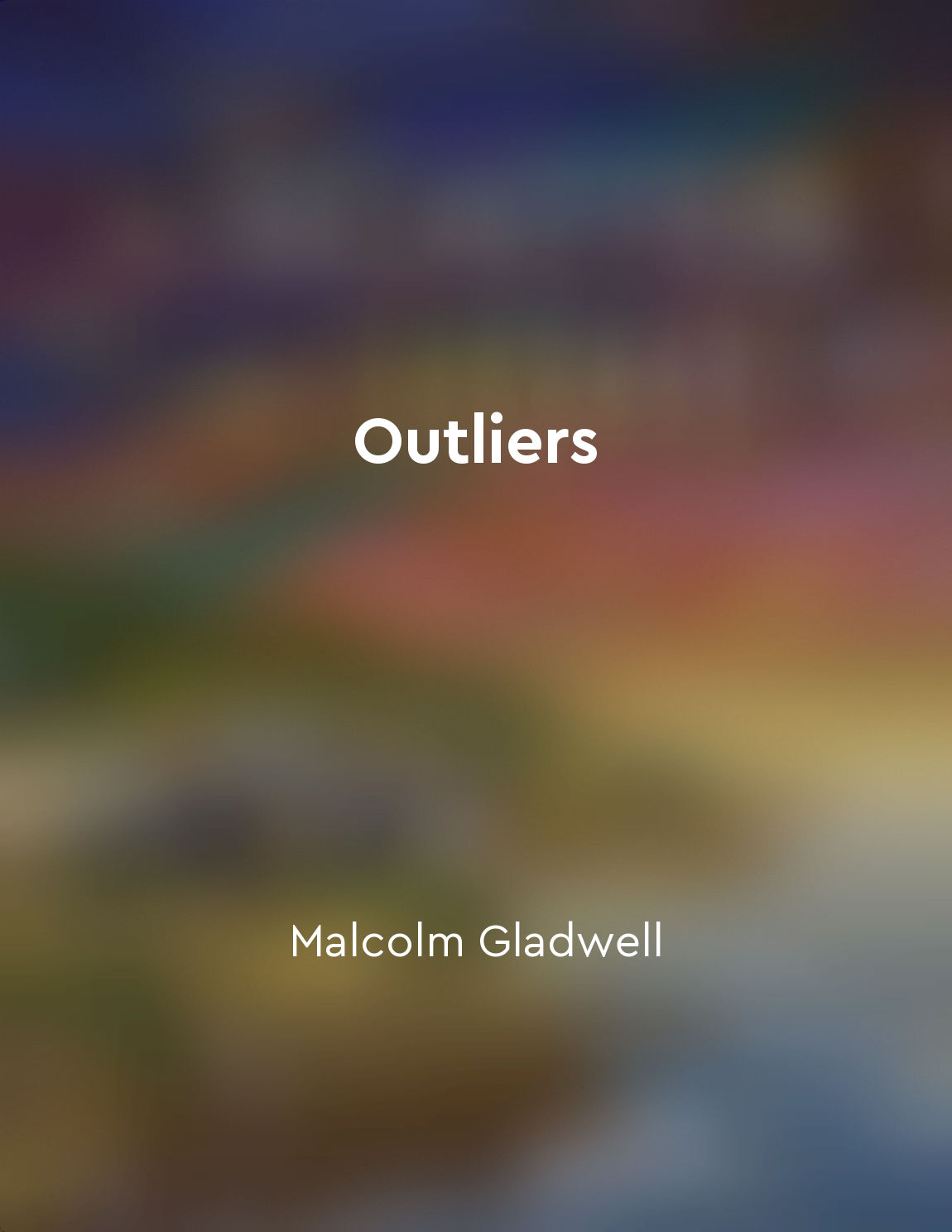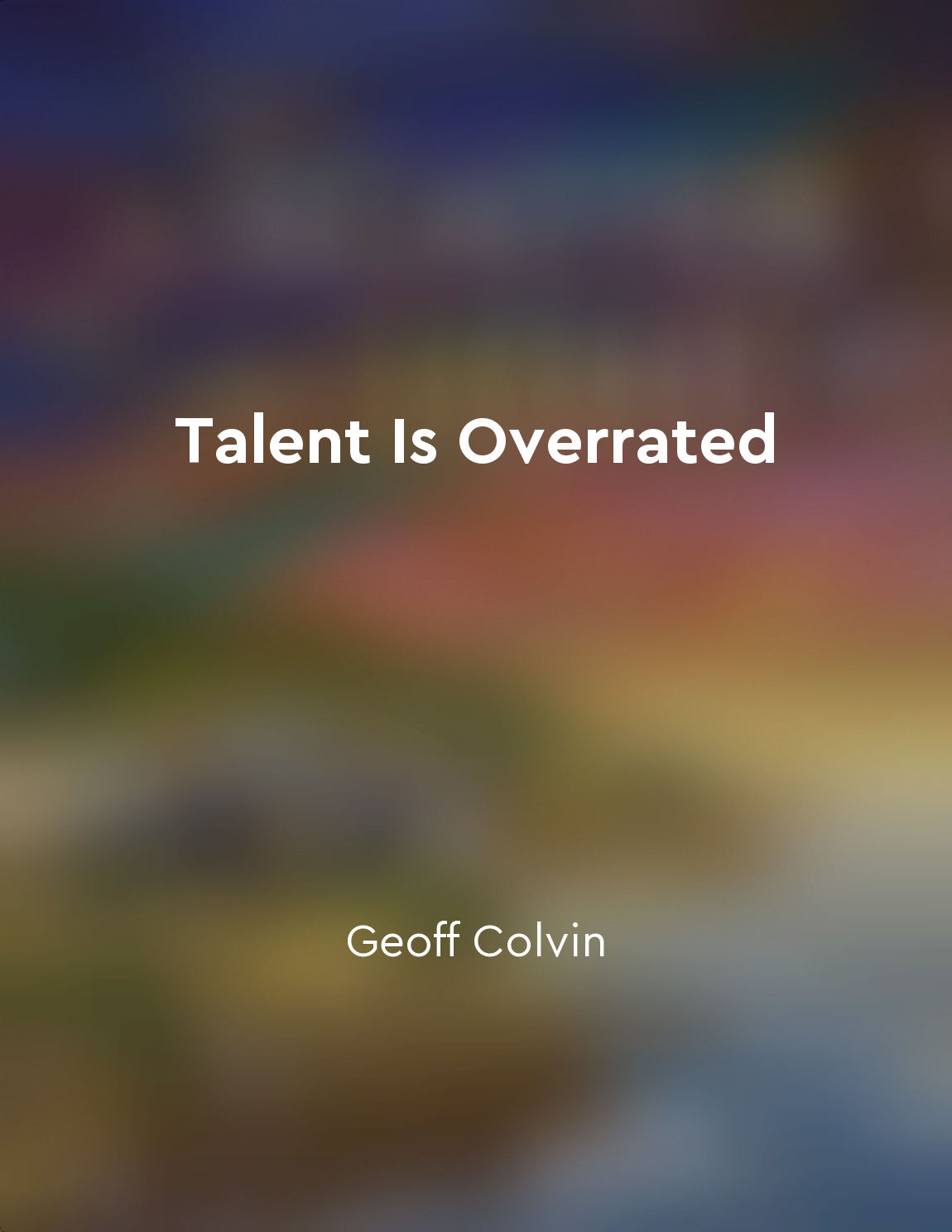Mastering a skill is a gradual process from "summary" of The Talent Code by Daniel Coyle
In the world of talent development, the idea of mastering a skill is often romanticized as a sudden stroke of genius or a mysterious gift bestowed upon the chosen few. However, the reality is much more mundane yet profound: mastery is a gradual process that unfolds over time through consistent practice and deliberate effort. This concept is beautifully illustrated in the book through the stories of successful individuals who achieved greatness not through innate talent but through relentless practice and a deep commitment to improvement. These individuals, whether they are musicians, athletes, or artists, all share a common characteristic: they understood that mastery is not a destination but a journey that requires patience, perseverance, and a willingness to embrace failure as an essential part of the learning process. The author emphasizes that the key to mastering a skill lies in the process of myelination, the neurological mechanism that strengthens neural pathways through repetition and deep practice. By engaging in focused, deliberate practice that pushes the boundaries of one's abilities, individuals can gradually build and reinforce the neural circuits necessary for high-level performance. Through this process, skills that were once challenging and unfamiliar become automatic and effortless, allowing individuals to perform at a level that seems almost effortless to outsiders. This transformation from novice to expert is not a sudden leap but a gradual progression marked by incremental improvements and subtle adjustments that accumulate over time. As the author aptly puts it, "mastery is not about perfection but about the pursuit of excellence through continuous refinement and growth." By embracing the gradual nature of skill development and committing to the long and arduous journey of mastery, individuals can unlock their full potential and achieve greatness in their chosen field.Similar Posts

Identify what you are good at
To find your ikigai, your reason for being, one of the key elements is to identify what you are good at. This means recognizing...
Cultivate a deep interest and curiosity in subjects
To truly excel in learning, it is essential to develop a profound fascination and inquisitiveness towards the subjects you are ...
Embrace failure as a learning opportunity
When it comes to learning, we often fear failure. Failure is seen as a negative outcome, something to avoid at all costs. Howev...
Stay true to your values and principles
One of the most important things you can do to ensure long-term success and fulfillment is to remain steadfast in your values a...
Dealing with regrets was necessary
Regrets. They can haunt you, eat away at you from the inside. They can cripple you, leave you wondering what could have been if...

Setting goals is important for progress
In order to make progress in life, it is crucial to set goals. Goals serve as a roadmap that guides us towards our desired dest...

The concept of "cultural legacies" and how they shape individual behavior
Cultural legacies play a crucial role in shaping individual behavior. These legacies are deeply ingrained in our upbringing, in...
Mastery is achievable through disciplined practice
The pathway to mastery is not a mysterious process reserved for the chosen few, but rather a result of deliberate and disciplin...

Deliberate practice requires intense focus and effort
The key to deliberate practice is the level of focus and effort put into the task at hand. It is not simply about going through...
Overcoming fears
Fear is a powerful emotion that can hold us back from reaching our full potential. It can paralyze us, preventing us from takin...
